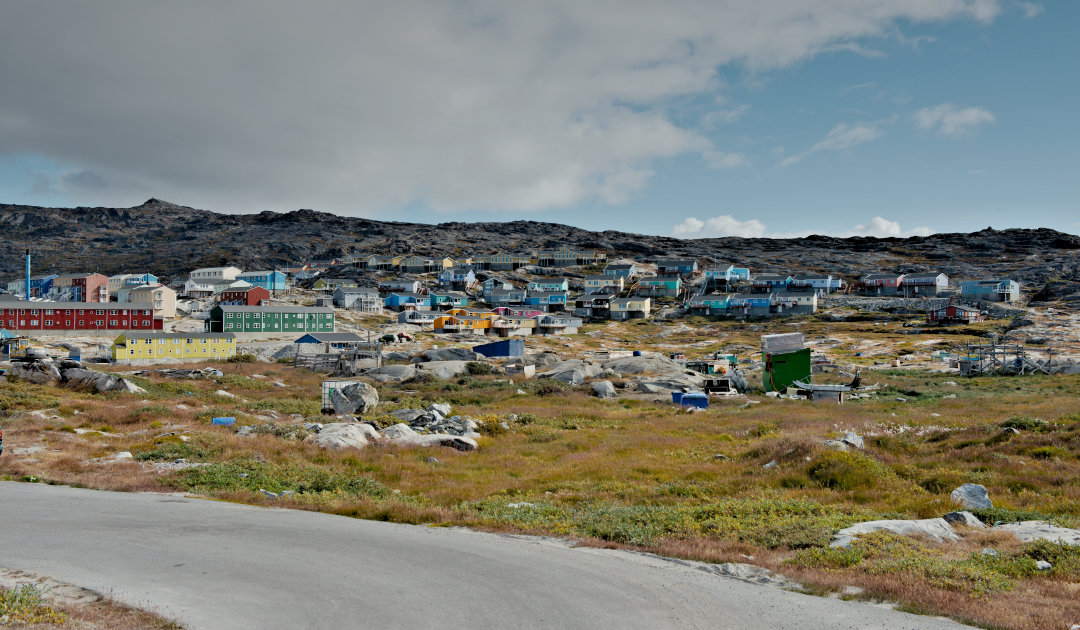
One of the most famous destinations in Greenland is Ilulissat in the west of the island. In fact, the third largest city on the island attracts with a special spectacle, the ice fjord with its huge icebergs and floes, which drift down from the Sermeq Kujalleq or Jakobshaven glacier. It is so unique that it has been declared a World Heritage Site by UNESCO. But this status also inhibits the economic development of the place and should be canceled. This is now being discussed in the local council and perhaps a compromise is emerging.
Not losing the lucrative World Heritage status, but still pushing the economic development of Ilulissat is the goal of a compromise solution in the discussion currently being held in the Avannnaata Kommunia local council, in whose area the popular tourist destination is located. The knack for the compromise solution lies in the buffer area that exists between the nature reserve, which is declared a UNESCO World Heritage Site, and the local area, which is to be developed. But that requires a change in the guidelines for the buffer zones. “In the buffer zones, the municipality has a great deal of discretion and can therefore decide for itself what the guidelines should be,” the council explained in a statement. The discussion is currently underway, but so far without results.



The discussion around the area is primarily about the proposal put forward by local politician and former Minister of Social Affairs and Families, Anthon Frederiksen. The Naleraq politician had proposed last year that the government officially revoke the status of Ilulissat Icefjord. This would finally spur the economic development of the site. From his point of view, the status does nothing at all, but prevents much-needed development in housing and infrastructure. “If we are no longer part of UNESCO, we will have very attractive areas for urban development,” he explained in an interview with the Sermitsiaq newspaper at the time. The politician has received support from his party as well as from some local business representatives.



However, Frederiksen’s proposal also meets with much skepticism and rejection, even within the council. The latter explains that tourism brings in a lot of important revenue and is a magnet especially because of the status of the Icefjord as an untouched natural landscape. Therefore one does not want to give up this status. At the same time, however, they also believe that the further development of the place is of the utmost importance. Because with the expansion of the airport, in order to be able to receive more tourists, it is also necessary to invest in the development of the rest of the infrastructure. This includes roads, stores and areas for industry, but also housing for people moving to Ilulissat, a trend that has long been seen in other Greenlandic towns.
In addition, the credibility of a responsible authority and region, for which sustainability in economic development is important, would be lost. That is why a compromise solution is being advocated. This envisages re-evaluating the buffer zones south of the city, which were previously designated as leisure and recreation areas, and changing the guidelines for their use. This would give the authorities much more leeway.

Whether the proposed solution will meet with acceptance from Anthon Frederiksen and his fellow campaigners is not known at present. But it is certain that even if the proposal is rejected, the region will not automatically lose its status. After all, only the government in Nuuk can notify UNESCO of the area’s withdrawal. And the fact that Naleraq is now no longer a ruling party is likely to diminish the chance that the government will take such a step. So, at least for now, the icebergs that gave Ilulissat its name will continue to drift into Disko Bay with the UNESCO label.
UPDATE: The local council has approved the compromise solution, as announced by the newspaper Sermitsiaq. This means that Anthon Frederiksen’s proposal to have UNESCO status revoked will not be pursued. Instead, the buffer zone between Ilulissat and the UNESCO site will be re-evaluated and opened for residential and commercial construction. To this end, plans are now being drafted and a community meeting convened to inform the public in a factual manner and to discuss opportunities and risks in equal measure.
Dr Michael Wenger, PolarJournal
More on the topic





